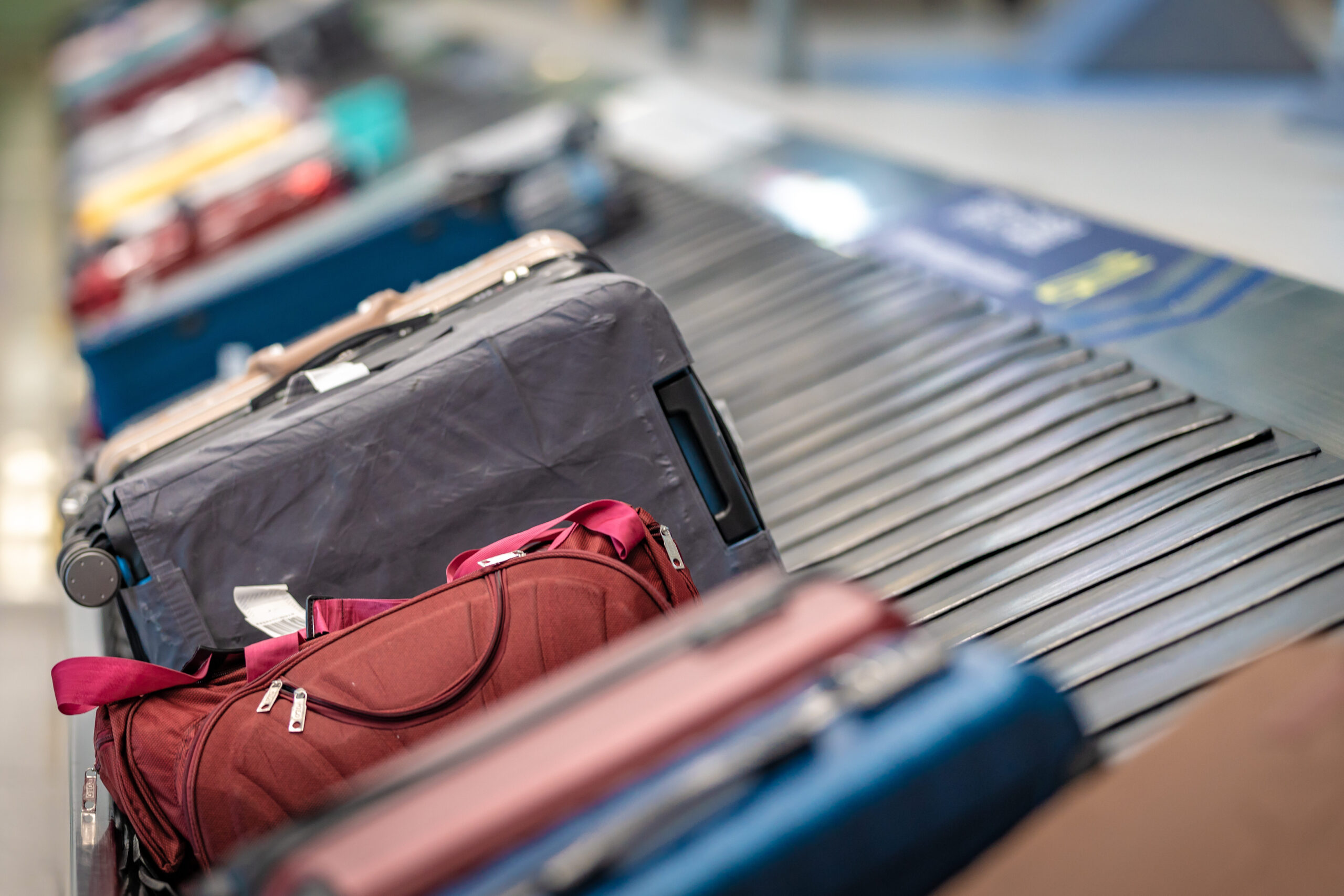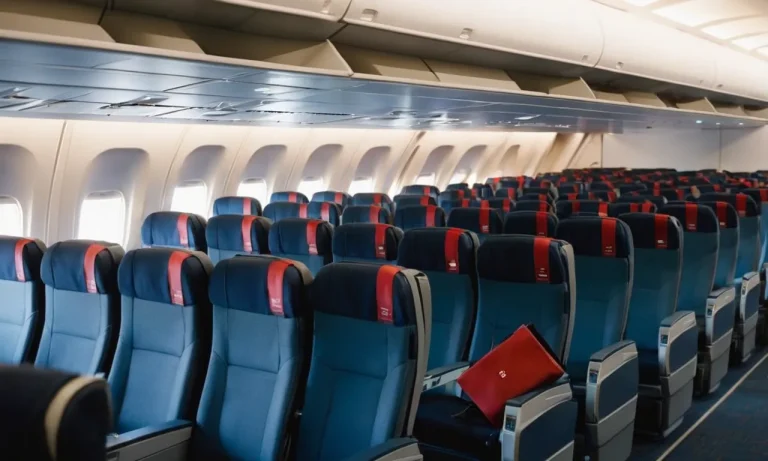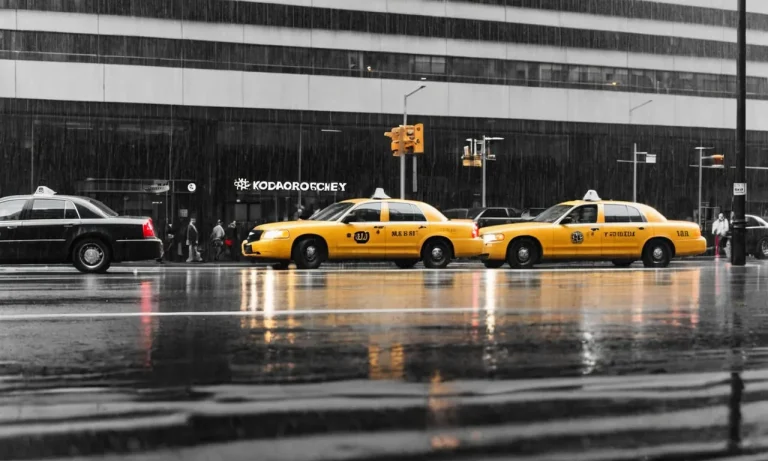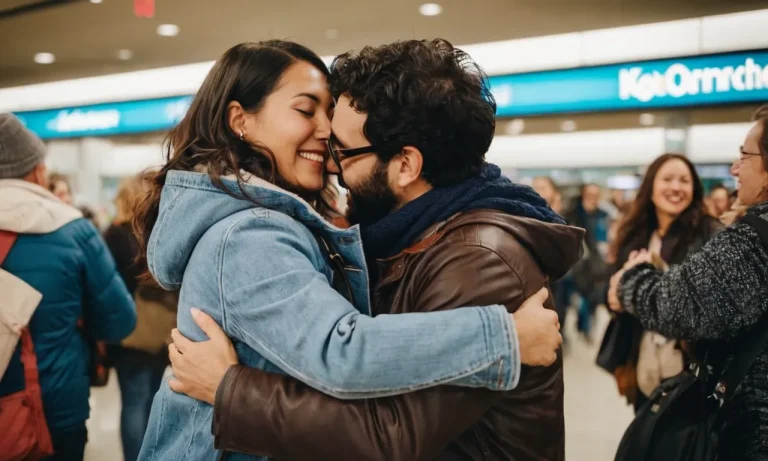Traveling internationally can be stressful, especially when it comes to protecting your belongings. If you’re wondering whether you can lock your checked bags on overseas flights, you’re not alone. Fortunately, the answer is yes – you can and should lock your luggage for international travel.
Here’s a quick answer: Most major airlines allow passengers to lock their checked bags on international flights as long as they are using TSA-approved locks. These specially designed locks allow screeners to open bags if necessary during security checks.
In this comprehensive guide, we’ll cover everything you need to know about locking luggage for international flights.
We’ll discuss types of luggage locks, TSA policies, requirements by different airlines, tips for safeguarding your belongings, and answers to common questions travelers have about securing their bags.
TSA-Approved Locks
When it comes to traveling internationally, many people wonder if they can lock their luggage for added security.
The answer is yes, but there are certain guidelines and regulations that need to be followed. One option that travelers have is to use TSA-approved locks.
What are TSA-approved locks?
TSA-approved locks are specially designed locks that have been approved by the Transportation Security Administration (TSA). These locks are equipped with a special feature that allows TSA agents to open and inspect the luggage without damaging the lock or the bag.
They provide an extra layer of security while still allowing airport security personnel to perform necessary checks.
How TSA-approved locks work
TSA-approved locks have a unique feature that allows them to be opened by TSA agents using a master key.
When a traveler locks their luggage with a TSA-approved lock, they can be confident that their belongings are secure.
However, if the TSA needs to inspect the bag, they have the ability to unlock it using their master key. Once the inspection is complete, the lock can be relocked using the same combination or key that the traveler used initially.
Where to buy TSA-approved locks
TSA-approved locks can be purchased at a variety of locations, including travel accessory stores, luggage retailers, and online marketplaces.
Some popular brands that offer TSA-approved locks include Master Lock, Samsonite, and Eagle Creek.
It is important to look for the TSA-approved logo or label when purchasing a lock to ensure that it meets the necessary requirements.
Other types of luggage locks
While TSA-approved locks are highly recommended for international travel, there are other types of locks available as well. Combination locks, key locks, and cable locks are a few examples.
However, it is important to note that if these locks are not TSA-approved, there is a chance that they may be cut off if the TSA needs to inspect the bag.
It is always best to check with the airline or TSA guidelines before choosing a lock for your luggage.
Airline Policies on Luggage Locks
When it comes to traveling internationally, many passengers wonder if they can lock their luggage for added security.
Let’s explore the policies of major US airlines, international carriers, and what to do if your lock is broken.
Major US airlines
Most major US airlines allow passengers to use TSA-approved locks on their luggage. These locks are specially designed to be opened by Transportation Security Administration (TSA) agents using a universal master key.
This allows them to inspect the contents of the bag if necessary without damaging the lock. It is important to note that using a non-TSA approved lock may result in it being cut off during the security screening process.
So, if you want to secure your luggage and comply with airline regulations, it is recommended to use TSA-approved locks.
International airline policies
International airline policies regarding luggage locks can vary. Some airlines may allow passengers to use TSA-approved locks, while others may have different requirements.
It is advisable to check with your specific airline before traveling to ensure you comply with their policy.
Additionally, some countries have specific regulations regarding luggage security, so it is a good idea to familiarize yourself with the rules of your destination country as well.
What to do if your lock is broken
If your luggage lock is broken during the security screening process, don’t panic. TSA agents are trained to inspect bags and, if necessary, will cut off non-TSA approved locks.
In such cases, they usually leave a notification inside your bag to inform you that they have conducted a search.
When this happens, it is recommended to replace your lock with a TSA-approved one to avoid any future inconvenience.

Tips for Safeguarding Your Belongings
When traveling internationally, it’s important to take precautions to protect your belongings. Here are some tips to help you safeguard your luggage:
Use TSA-approved locks properly
Using TSA-approved locks can provide an extra layer of security for your luggage.
These locks are designed to be opened by Transportation Security Administration (TSA) agents using a special master key, allowing them to inspect your luggage without damaging the lock.
Make sure to follow the instructions provided with the lock to ensure it is used correctly. This way, you can keep your belongings safe while still complying with security regulations.
Attach ID tags
Attaching identification tags to your luggage can be immensely helpful in case your bags get lost or misplaced. Include your name, phone number, and email address on the tags.
Additionally, consider using a luggage tag that conceals this information, such as one that flips open, to protect your privacy.
These tags can make it easier for airport staff to contact you and reunite you with your belongings if they are found.
Take pictures of luggage contents
Taking pictures of the contents of your luggage before traveling can be a valuable precautionary measure.
In the unfortunate event that your luggage is lost or stolen, having visual documentation of your belongings can help you with insurance claims or police reports.
It’s also a good idea to take pictures of any valuable or expensive items separately, focusing on their unique features or serial numbers.
Consider insurance
While it’s always important to take precautions, accidents can still happen. Considering travel insurance that covers lost or damaged luggage can provide you with added peace of mind.
Travel insurance can help reimburse you for the value of your belongings if they are lost, stolen, or damaged during your trip.
Before purchasing insurance, make sure to carefully review the coverage options and limitations to ensure it meets your needs.
By following these tips, you can enhance the security of your belongings and minimize the potential stress of lost or damaged luggage during your international travels.
Frequently Asked Questions
Can I use a combination lock?
Yes, you can use a combination lock on your luggage when traveling internationally. Combination locks are a popular choice among travelers as they provide a secure way to protect your belongings.
However, it is important to note that not all combination locks are created equal.
It is recommended to invest in a high-quality lock that meets the security standards set by the Transportation Security Administration (TSA).
What if I’m traveling with firearms?
If you are traveling with firearms, it is crucial to follow the specific regulations and guidelines set by the airline and the country you are traveling to.
Each country has its own rules regarding the transportation of firearms, so it is important to research and understand these regulations before your trip.
In most cases, firearms must be declared, properly secured, and transported in a locked, hard-sided case.
Do all international airports have TSA?
No, not all international airports have the Transportation Security Administration (TSA).
The TSA is an agency of the United States Department of Homeland Security and is responsible for security screening at airports within the United States.
However, many countries have their own security agencies that provide similar services. It is important to familiarize yourself with the security procedures and requirements of the specific airport you will be departing from and arriving at.
What if my lock gets broken?
If your lock gets broken during the security screening process, there are a few options available to you.
First, you can contact the airline or the airport’s lost and found department to report the damage and inquire about any compensation or reimbursement.
Additionally, you can file a complaint with the TSA or the appropriate security agency at the airport. It is recommended to have a backup lock or a spare in case of such situations.
Conclusion
When traveling overseas, securing your luggage with TSA-approved locks is a smart precaution to take. Following airline policies and TSA guidelines ensures your bags can be screened if needed while still preventing theft.
With the proper locks and ID tags, tracking your checked bags, and confirming insurance coverage, you can focus on enjoying your international travels instead of worrying about your belongings.
Safe travels! We hope this guide gave you the information you need to lock your luggage stress-free for any upcoming trips abroad. Let us know if you have any other questions about securing your bags for international flights.






